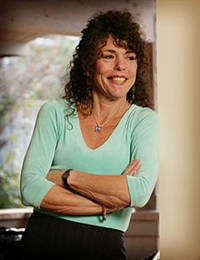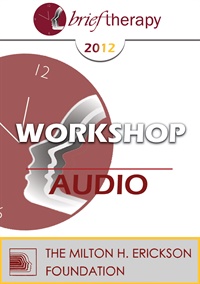BT12 Workshop 44 – Betrayed: Helping Couples to Heal from Infidelity – Michele Weiner-Davis, MSW, LCSW
- Average Rating:
- Not yet rated
- Topic Areas:
- Couples Therapy | Infidelity | Workshops
- Categories:
- Brief Therapy Conference | Brief Therapy Conference 2012 | Pioneers in Couples and Family Therapy
- Faculty:
- Michele Weiner-Davis, LCSW
- Duration:
- 2:08:11
- Format:
- Audio Only
- Original Program Date:
- Dec 08, 2012
- License:
- Never Expires.
Description
Description: This session offers a structured, compassionate approach to guiding couples through infidelity recovery. It outlines a flexible roadmap for navigating volatile emotions, rebuilding trust, managing setbacks, and addressing lingering attachment to affair partners. Emphasizing accountability, empathy, and nuance, it equips therapists to tailor interventions and support lasting repair in the wake of betrayal.
Syllabus Description: If you work with couples, you’re no stranger to infidelity. And because healing from infidelity is challenging, it behooves us to have a clear roadmap of the territory. In this workshop, we’ll go over an array of post-affair issues, including ways to deal with intense emotions, whether to discuss the details of the betrayal, how to begin rebuilding trust in the aftermath of the discovery, whether to have clinical ultimatums about ending affairs, how to handle setbacks, and how to deal with residual feelings for the affair partner. We’ll explore a step-by-step treatment plan and discuss how to tailor it to each couple’s unique needs. You’ll learn methods for overcoming the most common therapeutic impasses—hopelessness engendered by setbacks, debates about the value of discussing the affair, and ongoing dishonesty. You’ll discover the nuances involved in deciding how much disclosure is best for each couple and gain a greater understanding of the spiraling, zigzag nature of recovery. By the time you leave, you’ll know how to coach couples through a structured healing process that’s flexible and adaptable.
Educational Objectives:
- Review what both the unfaithful and betrayed spouse must do to heal from infidelity.
- Discuss & practice what to do when disclosure is made during an individual session.
- Name and discuss methods for overcoming the most common impasses in helping couples heal from infidelity.
*Sessions may be edited for content and to preserve confidentiality*
Credits
Handouts
| Timestamped Transcript (1.7 MB) | 46 Pages | Available after Purchase |
| Ericksonian Learning Snapshot (245.3 KB) | 2 Pages | Available after Purchase |
Faculty

Michele Weiner-Davis, LCSW Related Seminars and Products
Michele Weiner-Davis, LCSW is the Founder of The Divorce Busting Center in Boulder, Colorado. She is a popular TEDx speaker and the author of eight books including, Healing From Infidelity, and the bestselling Divorce Busting and The Sex-Starved Marriage. She is the recipient of several prestigious awards including the Outstanding Contribution to Marriage and Family Therapy Award from AAMFT.


